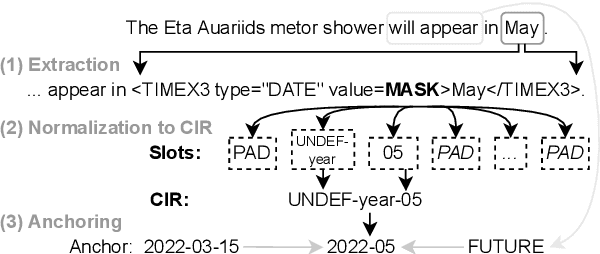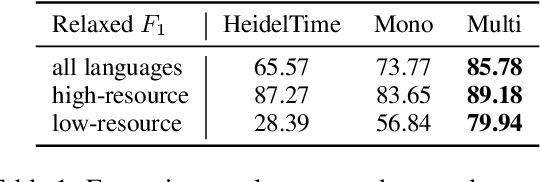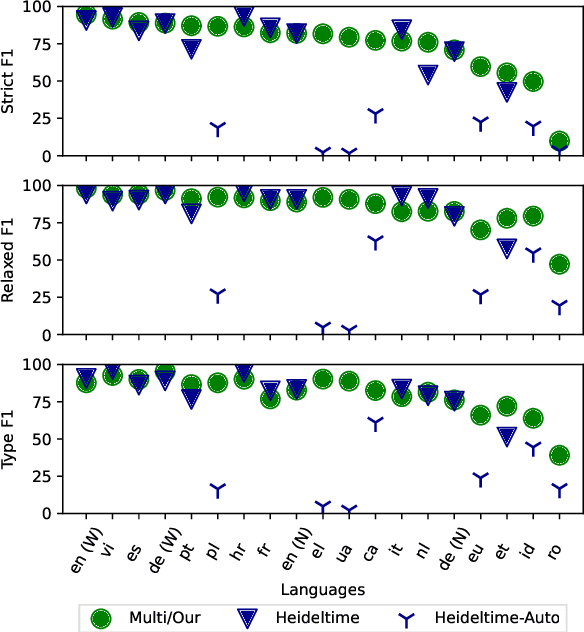Multilingual Normalization of Temporal Expressions with Masked Language Models
Paper and Code
May 20, 2022



The detection and normalization of temporal expressions is an important task and a preprocessing step for many applications. However, prior work on normalization is rule-based, which severely limits the applicability in real-world multilingual settings, due to the costly creation of new rules. We propose a novel neural method for normalizing temporal expressions based on masked language modeling. Our multilingual method outperforms prior rule-based systems in many languages, and in particular, for low-resource languages with performance improvements of up to 35 F1 on average compared to the state of the art.
 Add to Chrome
Add to Chrome Add to Firefox
Add to Firefox Add to Edge
Add to Edge